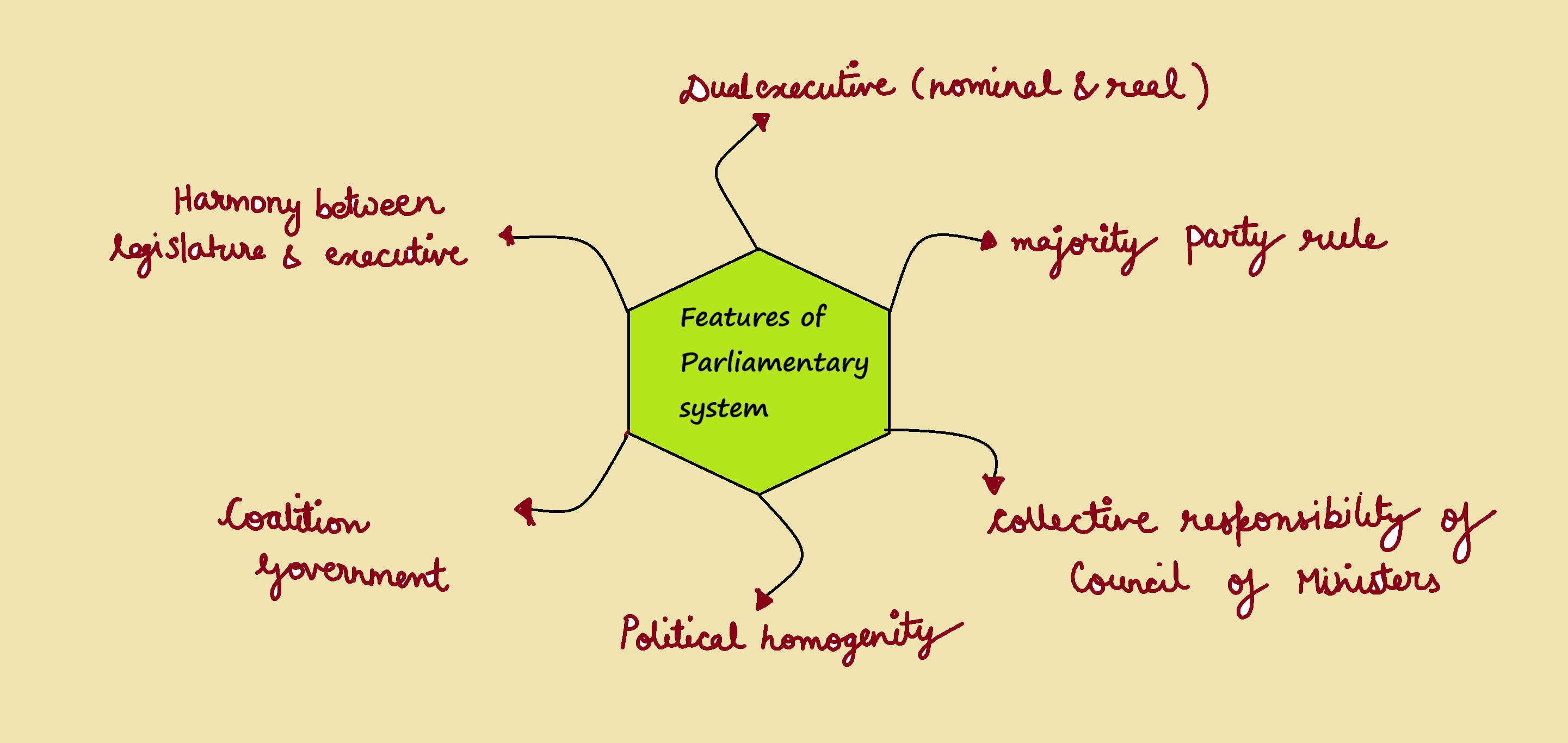Option B is the correct answer. A parliamentary system of government is one in which the executive is responsible to the legislature. This responsibility means that the executive stays in power as long as it enjoys the confidence of the house. The moment the confidence is lost, it can be removed by Parliament by passing the no-confidence motion. This is the same feature which hampers the stability of the parliamentary system.
Options A and C are incorrect. Parliamentary system functions irrespective of whether all parties have representation. The government is not directly elected by the people but indirectly through their representative in Parliament. Therefore, the instrument to remove the government through public vote is not available in the parliamentary system; this is a feature found in direct democracies.
Option D is incorrect. It goes against the fundamental principle of parliamentary democracy which requires an executive responsible to the legislature.
Therefore the correct answer is B.


